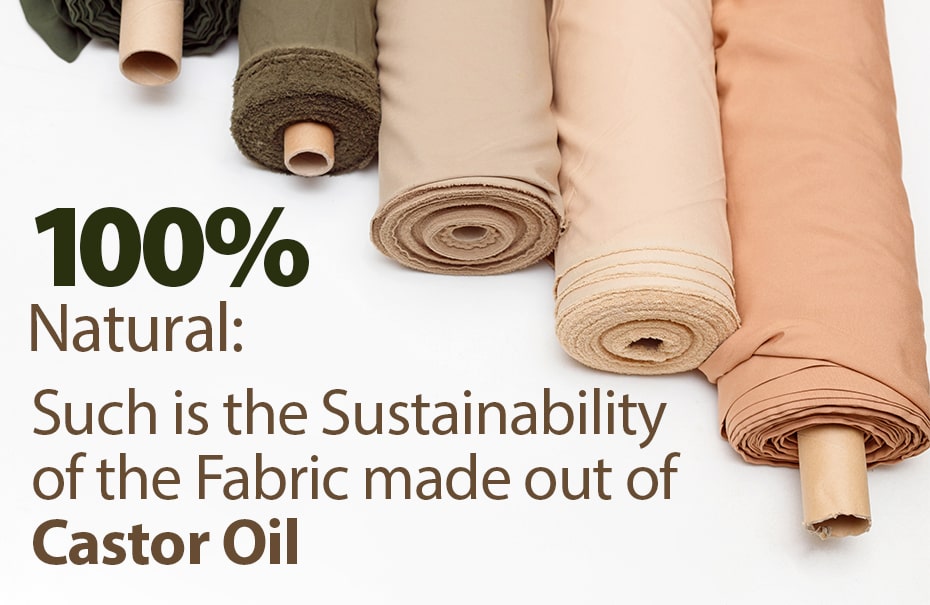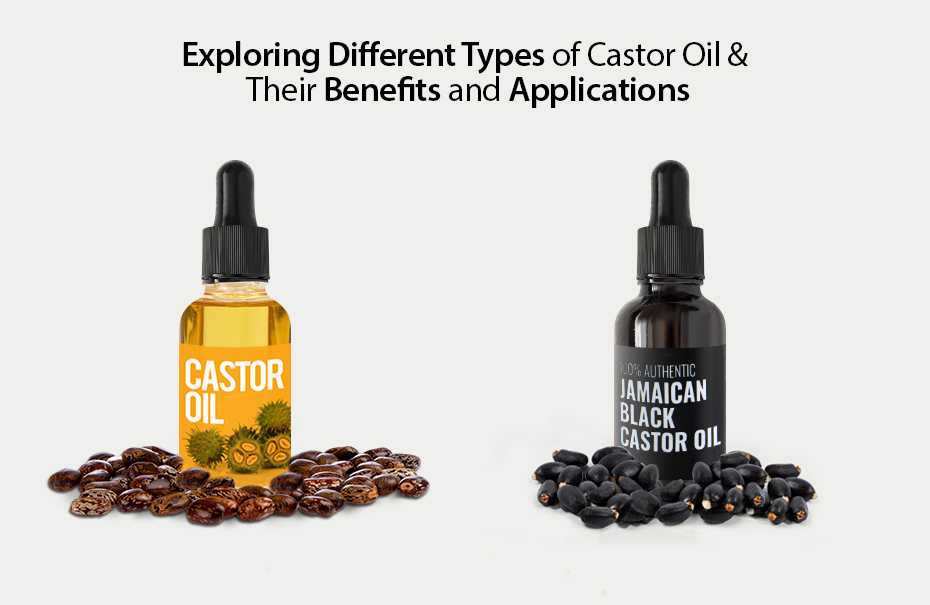100% Natural: Such is the Sustainability of the Fabric made out of Castor Oil

We highly focus on plastic and chemical waste that is polluting our environment but did you know textile waste is just after them on the list? Shocking isn’t it? But all the clothes that we throw away are just turning into an enormous pile of waste and hence it’s high time we switch to 100% natural and sustainable fabric like Castor Fibre because it is simply the synonym of awesomeness.
Castor – The Versatile and Dynamic Oil
The versatility of castor oil just like coconut oil has no end. The possibilities of products one can obtain from castor oil are still counting because each time some new discovery is made out of it. From pharmaceuticals, agriculture, paper, rubber, food, cosmetics, adhesives, plastics, coating, lubricants, paint, and whatnot, castor oil, and its derivatives are ruling the industries with their incredible abilities. Guess what? Castor oil biodiesel is proving its worth as a great replacement for petroleum-based diesel fuels due to its low carbon emission and other ecological and technical benefits and we may soon see its full-fledged use once it overcomes certain application challenges.
Castor, an important non-edible oil seed crop of the family Euphorbiaceae with great utilitarian value in various industries, is obtained from the seeds of the castor bean, Ricinus Communis. Since it does not compete with food crops/food grade oils, neither is foraged by animals, castor oil has no competition and therefore is considered as a star crop when it comes to commercial usage.
The Composition of Castor Oil
Do you know what makes castor oil so unique despite its odd taste and appearance? The composition that makes it exhibit unique physical and chemical properties which in turn makes it a desirable raw material in several industries. The credit for its versatility goes to the presence of hydroxyl group and double bonds in ricinoleic acid (D-12-hydroxyoctadec-cis-9-enoic acid) in castor oil which leads to the formation of innumerable castor oil derivatives such as Hydrogenated Castor Oil (Castor Wax), Sebacic Acid, Zinc Ricinoleate, Heptyl Alcohol, Ethyl Heptoate, 12-Hydroxy Stearic Acid, and others which today are in high demand due to the shift in consumers’ behavior.
Among such great creations of castor oil is the Castor Fibre which is a game-changing derivative of castor oil as it is 100% natural, means it is eco-friendly as well as sustainable. Let’s understand more about castor fibre in detail.
Castor Fibre: The Journey From Oil to Fabric
We know the information that a piece of fabric made out of oil might be extremely difficult for you to digest but castor oil has made it possible with its treasure of properties. Impressive isn’t it?
Sometimes described as ricinoleic acid triglyceride due to the presence of 85–90% of ricinoleic acid – a hydroxy monounsaturated fatty acid as main constituent of its fatty acid profile, castor oil is the only commercially available vegetable oil having a unique combination of physical properties like relatively high viscosity and specific gravity, solubility in alcohols in any proportion, and limited solubility in aliphatic petroleum solvents.
Castor oil and its derivatives are treated in various ways to obtain Bio-polyamides which are a new class of bioplastics that are derived from renewable resources such as natural fats and oils. Majorly derived from sebacic acid, castor oil undergoes several process such as pyrolysis, polymerization, yielding polyamide 6/10 and polyamide 10/10 with a carbon footprint that is reduced by about half. The bio-polyamides thus procured in the pellet forms are melted using the extrusion technique and spun into a continuous yarn which is then called Castor Fibre. Thus, it is 100% natural as it is produced from the castor oil even though it appears like synthetic fibres.
The Sustainability of Castor Fibre
As we said before, castor oil has no place in food cycle as its seeds are poisonuns to animals and for humans it is not so likable due to its odd taste, smell ans appearance. Hence, we can eliminate the question of castor oil causing a worry for consumption. Also, castor oil grows abundantly and the overall global production of castor plant is way impressive with India’s castorseed production alone estimated at 17.95 lakh tonnes (lt) during the current 2021-22 season, against 17.89 lt in 2020-21. So, it can be said that castor fibre derived from the water-saving and environmentally friendly castor plant is by all means natural and sustainabe as it does not cause any harmful impact on the food chain or environment because it guarantees reduced CO2 emissions.
What Makes Castor Fibre the Best?
Apart from it being sustainable and natural, the properties of castor fibre are what makes it a game-changer in the textile industry because, cloths made out of castor fibre are;
Ultralight – Means they have 25% less fabric weight as compared to an identical 100% polyester product but gives same results as them.
Quick-drying – They dry in 50% less time than other fibres.
Super stretchable – They are super-stretchy and fold themselves like a second skin around the body. Hence is apt for athleisure.
Extremely breathable – Their breathable feature makes them the perfect material for sports and activewear.
Non-iron – Even after numerous wash cycles they remain wrinkle-free and hence require no ironing.
Exceptionally comfortable – They are soft, skin-friendly, and are very much comfortable to wear.
Not so smelly – Their built-in bacteriostatic capacity meaning the odor-neutralizing property keeps odors in check and hence castor fabric are not at all smelly.
Suitable for all climates – Their intrinsic thermal insulation properties which means its temperature-regulating function makes them suitable to be worn in any climate.
Comes in various colors and provides maximum mobility- Their unique chemical structure ensures excellent dyeing capabilities even at low temperatures, so you can choose from a variety of colors.
So, Is Castor Fibre The Future?
Maybe, because looking at the way people are switching to natural products, realizing the extent of harmful effects the synthetic and chemical counterparts are causing the environment, castor fibre may soon become the future of fashion. After all, who knows what more innovations we will get from castor oil in future and which will expand the use of castor fibre in making other fashion wears than just the sportswear.
Hoping for the best, we Ambuja Solvex, known to be the leading castor oil manufacturers in India are doing our best in producing pure, 100% natural castor oil and will continue to do so maintaining the same quality and practicing sustainability. So, get in touch today!



